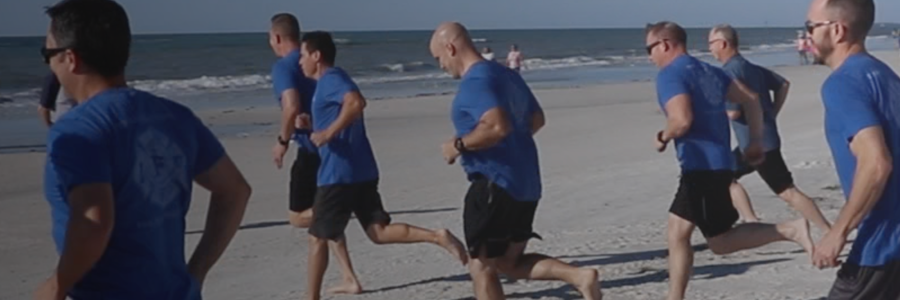How fire fighters perform any relevant job task, sport skill, or activity of daily living will be influenced in part by fitness-related attributes such as mobility, stability, strength, and aerobic capacity. In other words, being physically fit will afford unique opportunities to engage in specific activities and perform in ways that would otherwise not be possible. But the state of being physically fit is not synonymous with the pursuit of being physically active, nor will it provide the same type or number of benefits. Every fire fighter should be encouraged to pursue a level of fitness that allows them to perform and/or enjoy any activity they need or want to do (for work, life and play), but as a first step, we should simply aim to be more active, more often. Particularly given evidence that up to 80% of fire fighters may not be meeting the weekly physical activity recommendations.
Many of the cited benefits to regular exercise stem from the behaviors established by engaging in physical activity, meeting the weekly physical activity recommendations outlined by the World Health Organization (150 minutes of moderate to vigorous activity), and finding a sense of joy in and connection to physical activity of any kind. This implies that they occur independently of a fire fighter’s fitness status and span their physical, psychological and social well-being. As mentioned, every fire fighter should strive to maintain a particular level of fitness to meet the demands of the job, but this may be best accomplished by emphasizing, promoting and supporting the development of physical activity habits instead of fitness outcomes.
Consider your reasons to be active…perhaps they include maintaining your waistline, improving your sex life, decreasing your 5k time or avoiding the chronic conditions that influence so many of your peers, or perhaps they stem from the way exercise makes you feel – more energy throughout the day, better sleep, sharper memories, improved self-confidence, elevated mood, etc. There are benefits that every fire fighter can achieve by pursuing a physically active lifestyle, not necessarily by attaining or maintaining a specific level of fitness.
For example, when it comes to brain health, your exercise habits are much more important than your fitness level. Engaging in strenuous physical activity can mimic the responses that come with anxiety and help you learn to improve resilience and manage these responses in other situations. Regular exercise can also produce new brain cells (increase the size of our brain) and enhance thinking skills and memory. And the bigger and stronger your brain becomes, the longer it will take for neurodegenerative diseases such as dementia and Alzheimer’s to have an effect.
IGNITE will provide resources, support and guidelines to help every fire fighter in the NRMA in their pursuit to be more active more often. Systems, strategies and tactics will be shared to improve fitness and performance, but an emphasis will also be placed on behavior change and making active choices easy choices for everyone.

